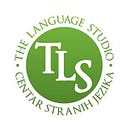Newsletter 031
Scrum English: Daily Meetings vol. 3
Past — checked!
Present — checked!
Future — here we come!
As previously mentioned, during the daily scrum, the participants discuss three important topics by answering the following questions:
- What have I done so far? What did I do yesterday?
- Do I have any impediments and what am I working on at this moment?
- What am I going to do today?
Therefore, having covered the first two questions by analyzing the past and present tenses that can be used in daily meetings, this newsletter is about to cover the final part of the meeting, i.e. our plans regarding the work that will happen between this daily meeting and the next one.
The answer to which tense should be used to discuss future events needs to be split into two groups that are related to:
- the level of certainty; and
- the level of planning.
How certain am I about a future event?
This is the first question we need to ask ourselves before choosing the appropriate future tense that will depict our thinking and the future event in a proper way.
- If we don’t have any proof or evidence or knowledge related to a future event, we need to use WILL.
- If we have some proof or evidence or knowledge related to a future event, we need to use BE GOING TO.
The main point here is that we don’t need to say or provide proof/evidence about a future event so that we can use BE GOING TO. The point is that we need to be sure that something is going to happen so that we can use this future form. If we only think/hope/believe/reckon/etc. that something will happen in the future and we are not certain nor have proof/evidence to support our way of thinking, we need to use WILL in that case.
- I think that the government will allow us to play football next week. (no evidence, no news about it, just a feeling/opinion about the topic)
- I think that the government is going to allow us to play football next week. (there was some news or evidence about this topic, it’s not just a feeling)
Have I made a plan for a future event?
This question helps us understand the origin of talking about a future event and we can roughly divide all future events into four groups:
- WILL — We made a decision/plan about an event now or during a meeting.
Nina: Alright, shall* we start? Krle, what are your plans for today?
Krle: Well, let me see… Today, I will only continue with the work that I have already started, nothing new. - BE GOING TO — We knew about an event before a meeting or before talking about it (we already made a decision).
Nina: OK. Sara, what about you?
Sara: Well, I am going to finish working on the item I started two days ago, and then I am going to start with a new one that I chose yesterday. - PRESENT CONTINUOUS — We scheduled an event in our calendar or made an official agreement with someone.
Nina: Great! And you, Dušan?
Dušan: I am having a meeting with Pana today. Some issues occurred yesterday so we agreed to arrange a meeting today and try to resolve them. - PRESENT SIMPLE — We scheduled a recurring event that has already happened in the past and that will continue to regularly happen in the future.
Nina: OK, please update me when you finish the meeting. Pana, any other plans for today on your end?
Pana: Well, besides the meeting with Dušan, I have a regular TL meeting after our daily meeting, and then I am going to take my kids to school so I am not going to be online for an hour or so. After that, I will probably continue working on the same feature as yesterday.
Nina: Shall I cover you while you are away?
Pana: That would be great, thanks! - SHALL* is used only to ask questions and to offer something.
Symphony’s famous “alpha team” managed to use all four future forms, and, thanks to them, we can clearly see how we can use each tense form. What a proficient team they are! Richard would be proud.
If Nina and her team were not clear enough regarding the usage of the future tenses, here are some exercises for you to brush up on your skills:
As the curtains close for this mini-series, we are continuing on a similar topic in the next one while staying in the world of Agile and Scrum.
Until next week,
Take care!
